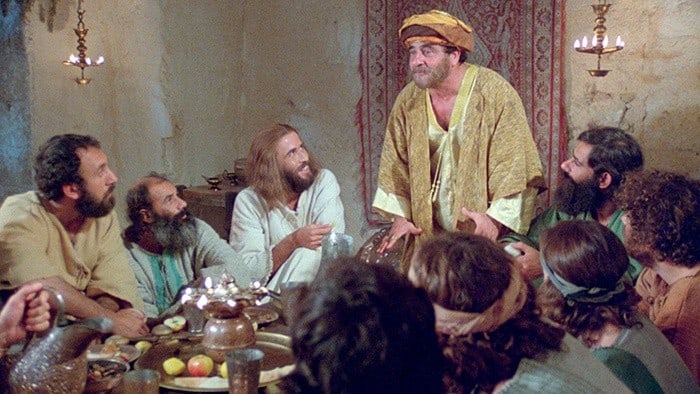One of the remarkable things about Jesus is that He always seemed to go where He was invited. This would occasionally include meals in the home of prominent Pharisees-even though Jesus had a strained relationship with these religious leaders.
Luke tells us about one such event (Luke 14). Jesus was in a Pharisee’s home on the Sabbath. These kinds of gatherings were typically large. In this case, Luke tells us that there are other Pharisees and experts of the law present (vs. 3).
Sometimes the hosts would throw these parties to show off their ability to draw a local celebrity to their home. And while that might have been one of this Pharisee’s motivations, there was something more nefarious going on. Luke tells us that Jesus “was being carefully watched” (vs. 1). These leaders were constantly looking to trap Jesus, and this meal offered an intimate opportunity.
But Luke tells us that Jesus was watching them, as well.
The Parable of the Place of Honor
In typical first-century gatherings like this, meals were served to guests reclining around a table in a U shape. The host would sit at the base of the U, and the most prominent guests would sit on either side. The less notable guests would be seated farther away from the host.
Jesus watches the guests jockey for the positions of honor (vs. 7), and then launches into this parable:
“When someone invites you to a wedding feast, do not take the place of honor, for a person more distinguished than you may have been invited. If so, the host who invited both of you will come and say to you, ‘Give this person your seat.’ Then, humiliated, you will have to take the least important place. But when you are invited, take the lowest place, so that when your host comes, he will say to you, ‘Friend, move up to a better place.’ Then you will be honored in the presence of all the other guests. For all those who exalt themselves will be humbled, and those who humble themselves will be exalted” (Luke 14:8-11).

Leading a small group or Bible study?
Download a free copy of Unpacking the Parables of Jesus. This guide is packed with the necessary tools to lead your group through an insightful discussion of Jesus’ parables. You’ll find critical insights and thoughtful questions to help guide your group through Jesus’ essential teachings. You’ll also receive our bi-weekly JFP News, packed with films and resources to help you share Jesus’ story with the world.
Choosing to be humble
It’s clear from this parable that Jesus isn’t above people receiving honor. The problem Jesus is addressing is our tendency to put ourselves in places of distinction. We don’t tend to see the humor in this parable, but the initial hearers would have. You have to admit, the thought of someone having to be told to sit at the foot of the table because someone of greater importance has shown up is kind of funny. Those present would have laughed at Jesus’s words because the very thought would have been so uncomfortable.
Jesus wants us to understand that we don’t receive respect or esteem by scrambling to be in the most important positions. Honor is to be received, not manipulated. There’s something infinitely more heartwarming in the image of someone being lifted out of their modest position than someone who believes they deserve prestige.
In the end, this parable echoes a theme that comes up throughout Scripture:
Though the Lord is exalted, he looks kindly on the lowly; though lofty, he sees them from afar (Psalm 138:6).
He mocks proud mockers but shows favor to the humble and oppressed (Proverbs 3:34).
Pride brings a person low, but the lowly in spirit gain honor (Proverbs 29:23).
For those who exalt themselves will be humbled, and those who humble themselves will be exalted (Matthew 23:12).
He has brought down rulers from their throne but has lifted up the humble (Luke 1:52).
In Jesus’s economy, honor has a place-but it should be bestowed and never assumed. And God bestows honor on those who choose humility.
Jesus used parables to teach us about the kingdom of God. You can learn more in the post “All the Parables of Jesus.”
